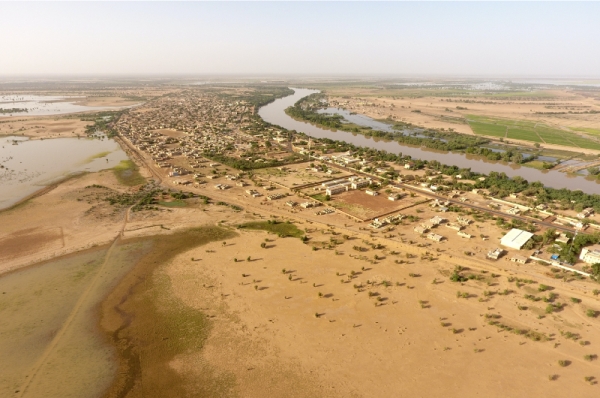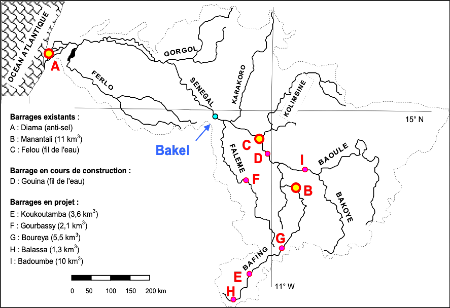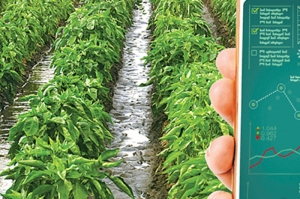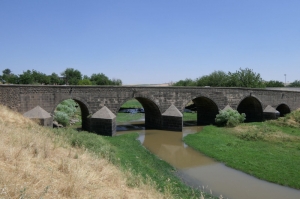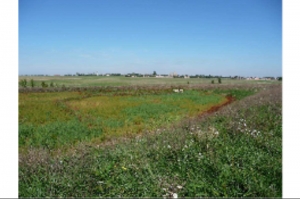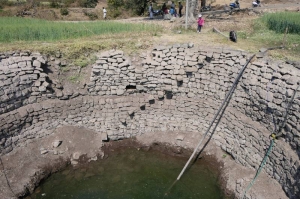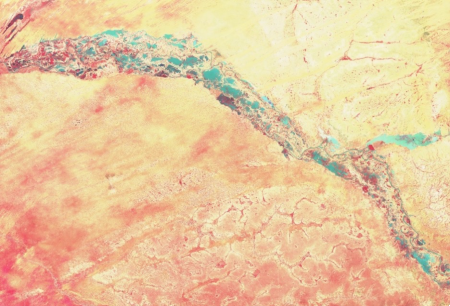 © A. Ogilvie, IRD : Sentinel-2 false colour composite of the middle valley of the Senegal River Basin
© A. Ogilvie, IRD : Sentinel-2 false colour composite of the middle valley of the Senegal River BasinSome needs may be incompatible with others, or even have harmful effects, particularly on ecosystems, and the influence of these hydraulic works (current and projected), as well as the management strategies capable of optimizing their operation and minimizing their impacts, must therefore be studied and understood. This research seeks to support the sustainable and responsible management of the river, supported by the OMVS within the framework of current reflections on the water-energy-food-ecosystems nexus (WEFE Senegal). The allocation modules are currently not optimised to manage several works in parallel, as flood propagation times are not sufficiently taken into account. Moreover, a monthly (versus daily) time step does not allow for the calculation of hydropower production losses at Manantali from a destocking for flood support exceeding the capacity of the turbines, nor does it allow for a correct representation of water needs for ecosystem and crop health. Finally, the current context of non-stationarity and the influence of climate change scenarios on the river need to be better understood.
The objective of this project is to improve the coordinated management of multiple reservoirs on the Senegal River in order to meet multi-criteria objectives on a daily time step basis. Specifically, it seeks to:
- Develop a Simulsen+ tool to simulate the coordinated management of multiple reservoirs in parallel at daily time steps according to multiple pre-established objectives.
- Characterise and quantify in terms of indicators the influence of development and management scenarios on hydropower production, the satisfaction of irrigation water needs and flood support for the maintenance of ecosystem services
- Simulate the influence of climatic and anthropogenic changes in the Senegal River upstream basins on downstream hydrological regimes and associated services.
In the medium and long term, this project aims to provide OMVS and the governments of the four Member States with the tools and indicators to decide on the development choices to be implemented in the Senegal River basin in order to cope with the increasing needs for water, energy and food, while minimising the impact on ecosystems.

